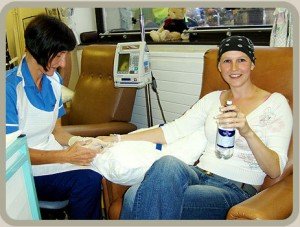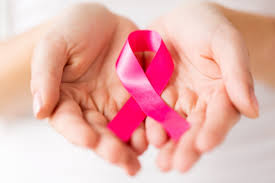
It is not only important to understand your disease but it is equally important to understand the line of treatment. Chemotherapy is one line of treatment that is offered for cancer. The moment one hears the word chemotherapy, there are multiple questions that crop in the mind of the patient and his family. In this article we look at answers to some of these questions.
After looking at your reports, your doctor is of the opinion that you need chemotherapy. You accept the opinion of your doctor, but feel apprehensive about the line of treatment. A multitude of questions may be arising in your mind. It is best to seek answers to these questions and acquire knowledge about the line of treatment. Acquiring knowledge is important for the following reasons:

- Knowledge makes you feel empowered
- Knowledge makes you feel like an equal participant in the treatment rather than a mute spectator.
Request your doctor and the nurse to help you acquire more information about chemotherapy. In case you are resorting to a book or online source of information, it is best to ask your doctor to refer some reading material for authentic information.
Let us attempt to answer some of the questions that may be in your mind.
What is Chemotherapy?
Also known as just ‘Chemo’, it is a line of treatment in which the patient is administered drugs with the objective of killing cancer cells. Usually used for cancer treatment, it may also be used for treatment of other diseases.
While treatment options like surgery and radiation are site oriented, chemotherapy acts through out the body. It is used for killing cancerous cells that may have spread to other parts of the body. A patient may be administered a single drug or a combination of drugs for best results. A combination of drugs is preferred, for it reduces the chances of cancerous cells becoming resistant to the drugs.
The doctor in consultation with the patient and his family takes important decisions like:
- What drugs are to be administered?
- What will be the dosage of these drugs?
- How these drugs will be administered?
What does Chemotherapy achieve?
Another important question that may be running in your mind is – what are we going to achieve with chemotherapy? Remember, the goals of treatment and results will vary from case to case. Chemotherapy is administered for:
- Curing the cancer;
- Preventing spread of cancer;
- Slowing the growth of cancer;
- Killing cancerous cells;
- Providing relief from symptoms of cancer.
Ask you doctor, what is the aim of Chemotherapy in your case.
When can chemotherapy be given?
The next important question that needs to be answered is when can chemotherapy be given. Once again, this would vary from case to case. There are two stages when chemotherapy can be given:
- Neo-adjuvant Therapy:When chemotherapy is administered before surgery or radiation therapy it is termed as neo-adjuvant therapy. The aim of administering chemotherapy at this stage is to shrink the size of the tumor
- Adjuvant Therapy: When chemotherapy is given after surgery it is termed as Adjuvant Therapy. The aim of administering therapy at this stage is to kill remaining cancerous cells in the body.
This is once again, determined by the site of cancer, the nature of drug to be administered, the dosage, policies of the hospital and insurance cover. After taking into consideration all the above factors, chemotherapy can be administered at:
- Home
- In a clinic
- OPD of a hospital
- Day care of a hospital.
How often is chemo given?
Issues like how often chemo is to be given and how long it will be given is again dependent on site, stage, drugs to be administered, the aim of administering chemotherapy and how body of a patient responds to treatment. It can be administered on daily basis, weekly basis, monthly basis or on ‘on and off’ basis. Breaks in treatment are offered with the objective of helping the body recover.
In case any special precautions that need to be taken during and after treatment, the doctor will educate you an on that. Chemotherapy drugs are removed from the body through the urine or stool.
How is Chemotherapy given?
Another important factor regarding which you need information is how will chemotherapy be administered?
Most of the chemotherapy drugs are administered in a vein, using a needle and a catheter and a soft plastic tube. In another method a CVC (a bigger catheter) may be used. It is usually put in a larger vein in the chest area or the upper arm. This is allowed to stay as long as the treatment continues. This helps avoid getting pricked multiple times and allows drawing blood more easily. Another type is a port, a small drum that with a tube going into the vein. A port is placed under the skin of the chest or the arm by adopting a minor surgical process. IV, CVC or Port this has to be decided in consultation with your doctor. Some chemo drugs may need to be taken orally (through the mouth). There are other ways also in which chemo drugs may be administered.
Chemotherapy does not hurt. It is just a prick of a needle and nothing more. What may make chemo difficult are the side effects associated with these drugs. But there has been so much work in this direction, that your doctor and nurse can help you deal with them. In case you experience anything unusual like itching, burning sensation tell your doctor immediately.
Do not hesitate to seek a second opinion on your line of treatment. Your treating doctor will not have any objections to that. Discuss all aspects of chemotherapy and ask your doctor about the side effects to expect and how best to deal with them. It is important to talk with your doctors, nurses, family, friends, colleagues, other patients and survivors. In case you are on any other medication, make sure to discuss that with your doctor for there may be some drugs that may not go well with chemo drugs. Time and again different tests will be conducted in order to determine if the treatment is working for you. Your doctor will also give you instructions regarding your diet and contact with others.









